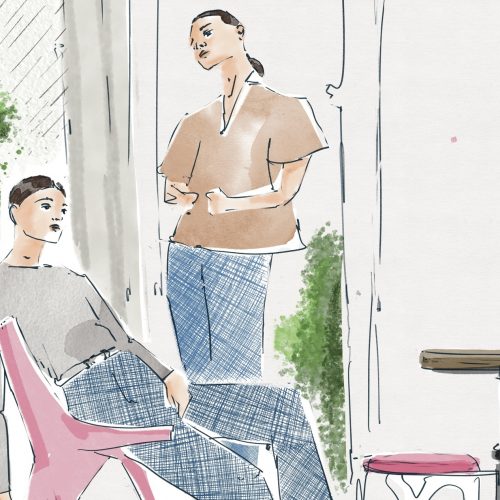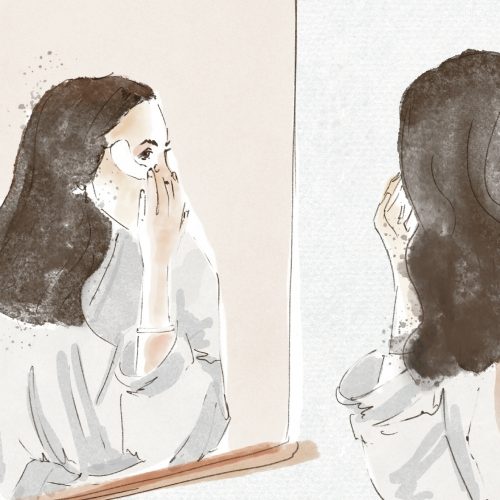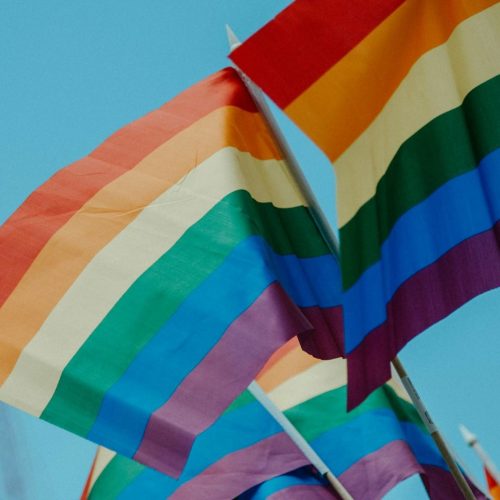Gen Z: Proudly The Most Sensitive Generation
No generation has ever had so much information readily available at their fingertips. No generation has ever been so connected via social media. The result? A socially conscious collective, fighting for their beliefs and inclusivity: Generation Z.
To receive the Luxiders Newsletter, sign up here.
WHO IS GEN Z?
All generations have advocated for social change helping us get where we are today, but it is no secret that Gen Z has developed a new kind of social momentum. In liberal echo chambers, everyone is accepted and encouraged to be who they want to be regardless of social norms. Gen Z pushes for representation and rejects established rules and accepted truths. Social media has made it easier for young people to educate themselves and challenge authority.
In 2016, the term ‘snowflake’ was used to belittle the politically aware and creative individuals that make up Gen Z. Figures such as Piers Morgan declared those born between 1997 and 2012 over sensitive and less resilient than generations prior. Piers Morgan and other boomers tried to shun Generation Z by using this term, suggesting their sensitive nature makes them weak and feeble.
One thing Generation Z is undoubtedly good at is redefining archaic structures to fit modern-day needs. So why should we view being hyper sensitive snowflakes as such as a bad thing?

ARE ALL OF GEN Z HYPER-SENSITIVE?
The term hypersensitivity was coined by Elaine Aron, used as a way of describing how we respond to trauma and violence. Hypersensitive people make up approximately 15-20% of our population; they are more likely to have adverse reactions to aggression and tension, with a tendency to feel frequently overwhelmed. People who are highly sensitive are likely to avoid situations that make them feel anxious and out of place. Research shows highly sensitive people are often more creative and have deeper personal relationships. Apparently, they are more likely to appreciate the beauty of mundane things.
GEN Z: SEPARATING SOCIAL CHANGE AND SENSITIVITY
Tim Collins claims scientific research shows Gen Z ‘really are’ snowflakes.
Generation Snowflake really are more flaky than older people - but don't tell them, they'll get upset. They get upset if they're labelled more self-centred or oversensitive than older people, according to the study.
The suggestion that Gen Z will get offended when told they are ‘self-centered’ or ‘oversensitive’ stirs a reaction in youths because of the lack of awareness of why young people are deemed sensitive and self-centered. Gen Z’s were born into an age of social media, created by their elders. They are labeled as self-centered for using Instagram and Twitter the way they were intended to be used: to share pictures and updates about one’s life. Older people were not born with social media so they are less likely to engage with social media and its self-indulgences. But being self-centered is so much more than taking a selfie, and boomers are not exempt from it.
Collins’ statement that Gen Z is 'over sensitive’ fails to recognise the hurt that marginalised groups felt (and still feel today) in the 20th century. The prejudice that people of colour, queer, and disabled people face is unjust. Gen Z recognises this and aims to create a more representative and accepting world. People who were not born at the same time may not align themselves with these values and might interpret the accommodation of different people’s needs as unnecessary. A lack of understanding that our society does need to make an active effort to be diverse and inclusive of everyone’s needs is not a case of Gen Z being oversensitive, but rather aware and astute individuals.
Generation Z has helped normalise and open the discussion of mental health and trauma, making it part of everyday conversation rather than a taboo. If hypersensitive people respond more outwardly to trauma and violence, perhaps this is a good thing as people are able to express themselves and openly deal with traumatic events, so they can move on and live their life unhindered by previous trauma.
Generation Z is not overly sensitive, but rather socially conscious, open-minded, and eager to engage in conversation to make a change. If that equates to being hypersensitive, Generation Z should be proud of it.

GEN Z: REDEFINING HYPER-SENSITIVITY
Even some of Gen Z have turned against the idea of empathy and sensitivity, as the new term ‘empath’ dominates social media conversations between youths. ‘Empath’ trivializes the stereotypical narcissistic person who uses their trauma as a ‘one size fits all’ solution to your problems, telling you how you feel rather than listening to you explain. We have been told being sensitive is a negative trait, and whilst we should never use our personal experiences to decide we know how other people feel, we should be more open to the idea that being sensitive and empathetic is perhaps not as bad as people like Piers Morgan and Tim Collins would have us believe.
Being sensitive simply means as a generation, Gen Z are more tuned into human emotions and more determined to take everyone’s feelings into consideration. This will undoubtedly be viewed as hypersensitive by others who do not share the same mindset, but it does not mean we should stop accommodating other people’s feelings.
Are you proud to be a ‘woke snowflake’? Join in the conversation on our Instagram @luxiders_magazine and let us know your thoughts.

+ Words:
Florenne Earle Ledger
Luxiders Magazine




